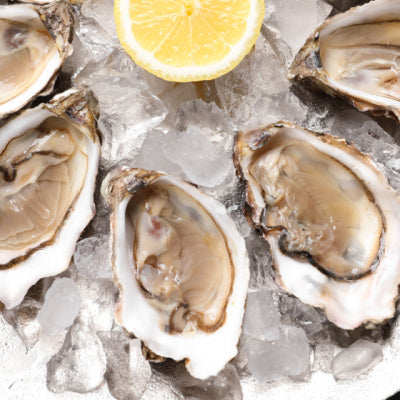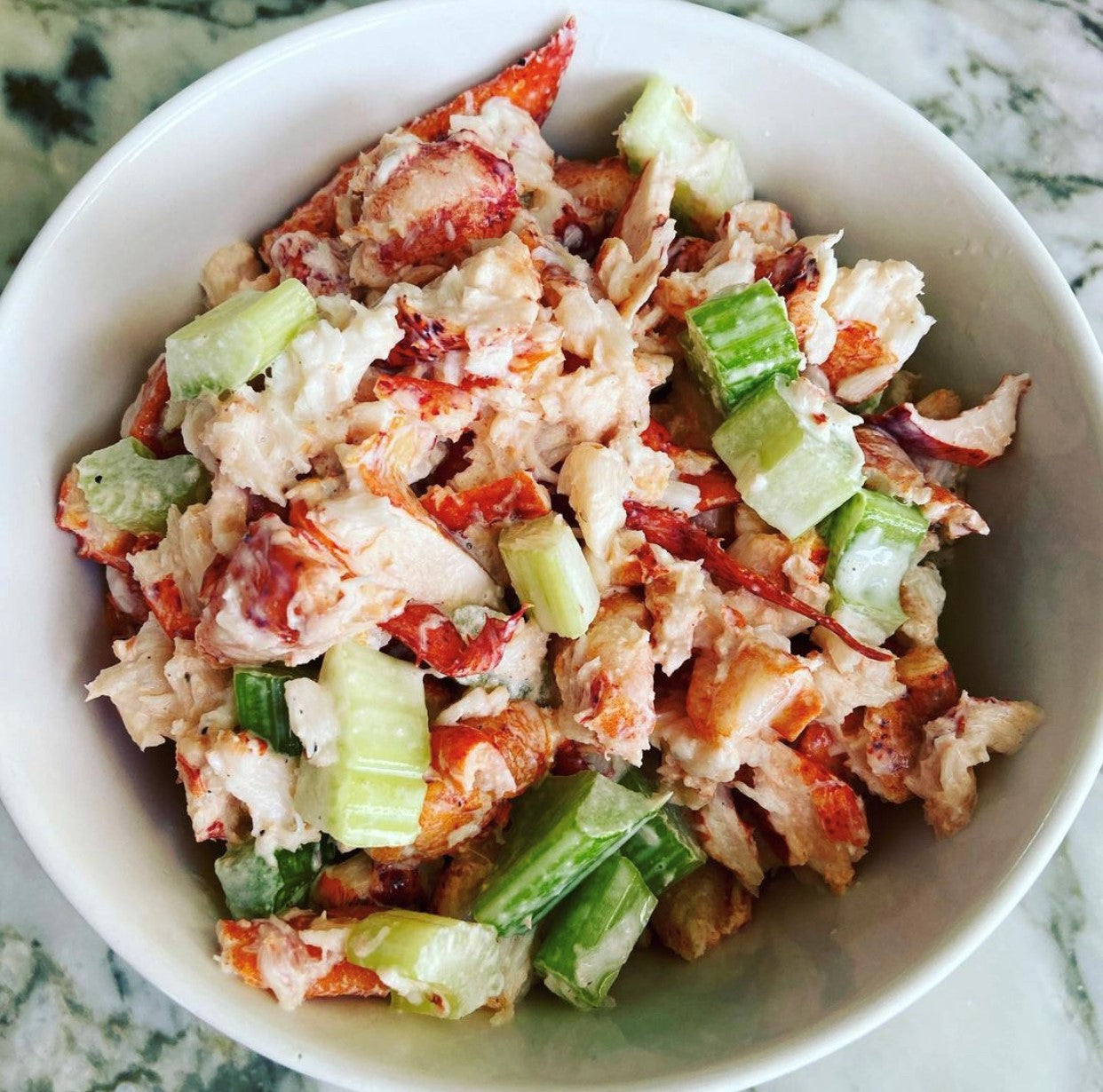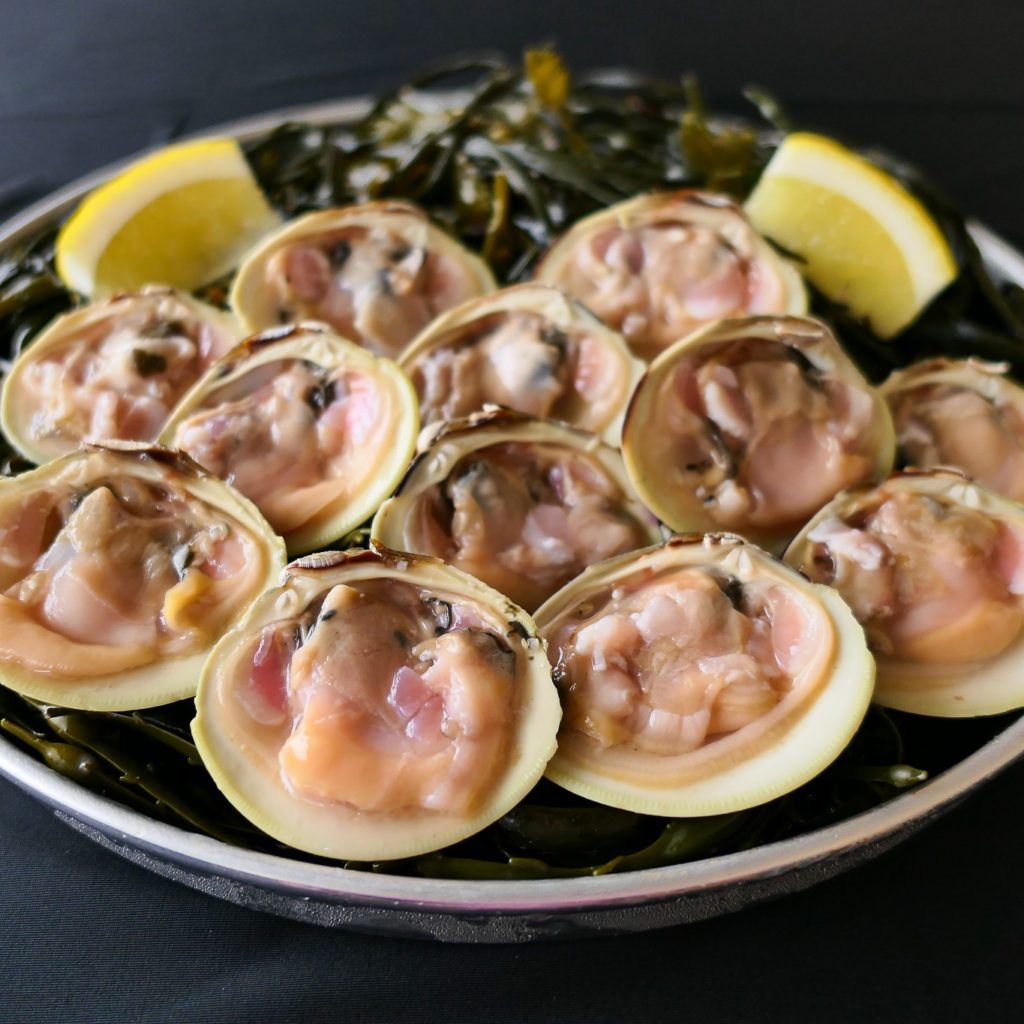Your Cart is Empty
FREE SHIPPING ON ALL ORDERS OVER $125!
FREE SHIPPING ON ALL ORDERS OVER $125!
FREE SHIPPING ON ALL ORDERS OVER $125!

The United States Department of Agriculture (USDA) and the American Heart Association (AHA) both recommend that you should be eating fish two to three times per week, a minimum of 8 ounces, in order to maintain a healthy diet.
Every five years the USDA revises their Dietary Guidelines and each time seafood gets a bigger shout out for being a nutritional powerhouse. This recommendation was reinforced in the 2020-2025 Dietary Guidelines for Americans and is also supported by the American Heart Association (AHA).
Seafood is a nutrient dense meal option packed withvitamins, minerals, and other vital health-promoting components. It’s encouraged as a cornerstone to each individual’s well-balanced dietary pattern because seafood is a flexible protein source easily incorporated into most diets in an effort to obtain heart healthy fats such as EPA and DHA (eicosapentaenoic acid and docosahexaenoic acid). These long-chain Omega-3 fatty acids can reduce inflammation, lower blood cholesterol levels, and helpdecrease the risk of cardiovascular disease.
Seafood is a superb source of lean protein with less saturated fat and cholesterol than any other animal protein. For example, Wild Cod is one of THE leanest proteins available with 25 grams of protein, 1 gram of fat, and 110 calories in a 5 ounce portion.
In addition to containing heart healthy fats, seafood is an excellent source of protein that provides a wide variety of micronutrients, including Vitamin D, Vitamin A, Selenium, Calcium, and Magnesiumthat each play an important role in the body’s ability to function and thrive.
In addition to heart healthy fats, the Vitamin D found in seafood is equally essential. Garnering a lot of attention over the past decade as researchers have identified that most people aren’t consuming enough of it, Vitamin D is key for optimal bone health, muscles, a strong immune system, and so much more. Top food sources of Vitamin D include fortified milk, soymilk and orange juice, as well as fatty fish such as salmon, mackerel, tuna, mushrooms, and egg yolks.
According to the National Institutes of Health, research indicates that omega-3 supplements don’t reduce the risk of heart disease the way regular fish consumption does, which is why it can be extremely valuable to routinely include bothin your meal preparations.
Healthy fat content also varies depending on the type of fish being cooked. Some specific sources worth checking out include salmon, herring, and trout as well as Atlantic and Pacific mackerel.

Being aware of seafood’s numerous health benefits is merely the first step in adopting or maintaining a nutritious diet. The second is selecting sustainable and high-quality seafood, which is where North Coast Seafoods can help.
North Coast Seafoods offers Ocean-Raised Norwegian Salmon, which is extremely rich in Omega 3 fatty acids and an excellent choice for a healthy, delicious meal. Our Naked Seafood line also offers Wild Icelandic Cod, Wild Sea Scallops, Wild Alaskan Salmon, Scottish Style Smoked Salmon and Raw & Cooked Shrimp.
These options represent the finest quality, sustainable seafood; flash frozen at the source to maintain peak freshness, texture, and flavor. Those in the market for a simple seafood solution needn’t look any further.
Eating 2-3 servings (at least 8 ounces) of fish and shellfish each week, as recommended by the USDA, has been linked to the following possible benefits:
Every five years, the USDA revises their Dietary Guidelines and each time seafood gets a bigger shout out for being a nutritional powerhouse. This recommendation was reinforced in the 2020-2025 Dietary Guidelines for Americans and is also supported by the American Heart Association (AHA). View them here.
Mary Ellen Kelly is credentialed as a registered and licensed dietitian and is a board certified sports dietitian. She is the owner of Fuel Forward, LLC, a nutrition consulting business. She is also Adjunct Faculty for Bloomsburg University and the Manager of The Sports Nutrition Immersion Program (SNIP), a mentorship program for sports dietitians through the Collegiate and Professional Sports Dietitians Association (CPSDA).
She was the Miami Dolphins’ Full Time Sports RD from November 2014 through March 2018 and was the Head Sports RD at the University of North Carolina, Chapel Hill from 2011-14 and Staff Sports RD in 2010. Prior to UNC, she served as the Campus Dietitian/Sports Nutritionist at St. John’s University in Queens, NY.
Mary Ellen holds a bachelor’s of science in dietetics from Boston University, where she was also a member of the varsity women’s track and field team. She earned her master’s degree in clinical nutrition from New York University and completed her dietetic internship training at the James J. Peters Veteran’s Affairs Medical Center in Bronx, New York.
November 29, 2021
I didn’t know that seafood had so many health benefits, thanks for the information. I think I will start trying to eat seafood more often to enjoy these benefits. Now I just need to talk my husband into taking me out for a nice dinner. https://themadcrabstl.com/
Comments will be approved before showing up.



Learn about the many health benefits of shellfish! Oysters, Clams, and Mussels are rich in Omega 3 fatty acids, lean protein, and micronutrients.
Sign up to receive the best seafood recipes, first access to new products, exclusive discounts and more!
Olivia Smart
December 29, 2021
Thank you for explaining some of the benefits of eating seafood. My husband and I are trying to be better about our overall health and eating a better variety of food. We’ll have to include seafood into our rotation since it seems like it has a lot of nutrients to share. https://www.flippinfreshwodonga.com.au/